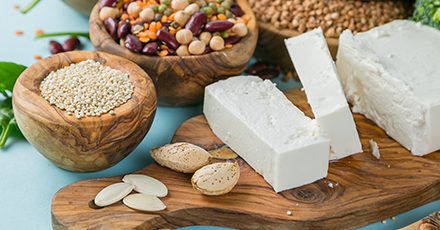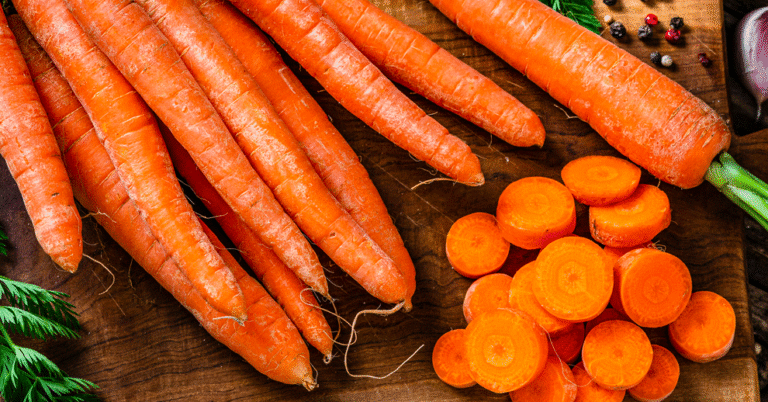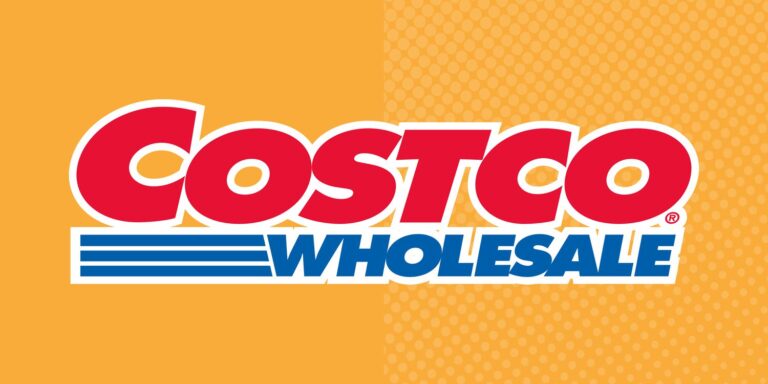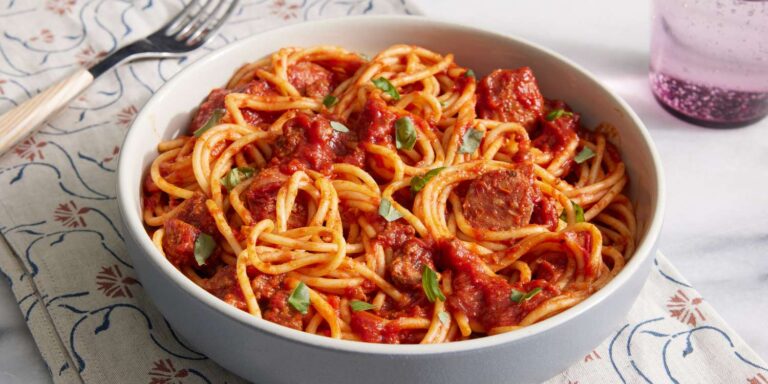20 vegetarian foods with protein -rich protein -rich | Enjoy your meal
Animal foods such as meat, fish, dairy products and eggs are often referred to as “complete” protein sources (which means that they contain all nine essential amino acids), and certain plant sources are also. However, other plants can make a less optimal contribution to some of the essential amino acids. The most likely to be amino acids Lower values in plants are lysine, methionine, cysteine, tryptophan and threonine.
Which groceries on a vegetable basis are a good source of protein?
If you contain a varied, balanced diet with different sources of plant proteins, you will receive all the amino acids you need. There are also No evidence In order to suggest that a different diet on a plant -based diet means that you have defective protein.
Read on to find out which food you should eat more.
1. Hemp seeds – 30 g per 100 g
Exceptionally nutritious, with more than 20% of their calorie content in protein and a source of unsaturated, healthy fats, these small seeds make a nutritious addition to muesli, backs and snacks.
We would be happy to add you to ours Nut and seed muesli or Apricot and seed protein bars. With only 1 tablespoon of protein and a number of vitamins (such as vitamin E) and minerals (including magnesium, iron and zinc), you are worth adding your store cupboard.
2. Wheat core – 27.3 g per 100 g
The nutritious center of wheat grain, wheat germ, is removed from most white sophisticated wheat products. Wheat, rich in protein, fiber and healthy fats and is also packed with magnesium, zinc and folic acid.
Often added to muesli like ours High-fibre muesliWheat meat makes a great nutrient thrust.
Only 1 tablespoon of 4.1 g protein.
3. Peanuts – 25.8 g per 100 g
Not actually a nut, but a member of the legumes and actually have more with soybeans, lentils and garden heirs together.
A small handful of peanuts or 2 tablespoons of peanut butter delivers about 7.7 g of protein. Add peanuts Vegan curryBreak or a smoothie for a power boost.
4. Pumpkin seeds – 24.4 g per 100 g
A 30 -G portion of pumpkin seeds delivers an impressive 7.3g protein and contributes to useful sources for zinc and iron.
If you cook a pumpkin, don’t forget to remove the seeds and enjoy them roasted or add to a salad, as in our Superfood salad with citrus dressing.
5. Almonds – 21.1 g per 100 g
Almonds are a great source of bone -friendly minerals such as calcium and magnesium. They are naturally sweet in taste, which makes them a varied ingredient – enjoy for breakfast in ours Almond crepes with avocado & nectarines or as a delicious addition to our Linguine with water cress & almond pesto.
A 30G portion (approximately a small handful of spacious handful) delivers 6.3 g of protein.
6. Temph – 20.7 g per 100 g
Temph from fermented soybeans is rich in protein. In fact, weight for weight is more protein as a tofu. Soy delivers all nine essential amino acids, which we need for growth, repair and functions such as immunity, which make it a useful inclusion for those who follow a vegetable diet.
Never cooked with Temh? We recommend that you fry or fry it with many spices to create a delicious taste. Try ours sticky temeh, mango & lime Noodle salad or Temeh Traybake.
7. Pistachios – 20.3 g per 100 g
These delicious nuts give the dishes a fascinating color thanks to the dishes Colorful pigments Health -promoting properties have this. Compared to most other nuts, Pistachios have a lower fat and calorie content and contain the highest amount of potassium.
Only a 30g portion of pistachios offers an impressive 6.1g protein. Do not reserve for sweet dishes – add them like our side dishes Spristed sprouts with pistachios and pomegranate or Herbal salad with pomegranate & pistachios.
8. Sunflower seeds – 19.8 g per 100 g
A delicious addition to a muesli, Seed mixture Or salad – like ours Brokkoli -pasta salad with eggs and sunflower seeds – Only a small handful (30 g) sunflower seeds delivers useful 5.9 g protein. Loaded with selenium, sunflower seeds can also help support their immune defenses and thyroid function.
9. Cashwnuts – 17.7 g per 100 g
Adding only 30 g cashewniefs delivers 5.3 g of protein. Cashwnuts are a useful source for iron and zinc and make a delicious snack as part of our Cashew -dip cashew. They also lend our hooker roasted cauliflower with a tomato and cashew sauce.
10. Tofu – 13.0 g per 100 g
A 100 -G part of tofu from cultivated soy milk offers about 13.0 g of protein. The brands vary so that it is always worth checking the product label. Available in different forms, including silk, firm and marinated, this soy product is incredibly versatile – use it to do it Tofu Brekkie pancake or create a Japanese inspired salad.
New in Tofu? Learn like too Cook it.
11. Edamame beans (soybeans) – 10.9 g per 100 g
Beans are among the best proteins on a plant-based proteins, and Edamame is available with the best of them-one 80g cooked portion of these versatile beans, offers 8.7 g protein.
Try our delicious Edamame Falafel Wraps This combines the advantages of Edamame with those of chickpeas.
12. Hafer – 10.9 g per 100 g
They are rich in slowly releasing carbohydrates and fiber and can be surprised to find out that oats have a useful protein, with a 40g portion served 4.4 g.
Use them in our milk-free banana hole pancakes or Vegan “meatballs”.
13. Linsen – 8.8 g per 100 g
Budget-friendly lenses give meals a “fleshy” substance and work well in dishes such as Vegan lasagna or Vegan sweet potato cottage pie. A third of the calories from lenses come from protein.
Impulses such as lenses contain almost twice the amount of whole grain protein, including oats, wheat, barley and rice. Combine the two and you have the perfect combination, one compensates for your contribution of essential amino acids. Add your meal only 3 heaped TBSP with cooked lentils, and you will receive about 9 g protein as well as fiber, folic acid and potassium.
14. Black beans – 7.5 g per 100 g
Black beans are packed with heart-friendly nutrients such as folic acid, potassium and fiber, and only an 80 g portion delivers 4.8 g of protein.
Enjoy them in our Black bean potatoes nachos or Burrito bowl with chipotle black beans.
15. Chickpeas – 7.2 g per 100 g
With a healthy mixture of protein and fiber, chickpeas fill up for you and well for you. Don’t limit them to hummus – enjoy them in a curry like ours Chole with cumin Rice Raita or hearty bowl like ours Chickpeas, spinach and almond butter shell. These delicious recipes combine chickpeas with grains or nuts to deliver all the AMO acids you need.
An 80g part of chickpeas (cooked) delivers 5.8 g of protein.
16. Kidney beans – 6.9 g per 100 g
With heart -friendly nutrients such as potassium, folic acid and fiber, not only the protein contribution from which you benefit from if you add kidney beans to your plate.
With an 80g portion of kidney beans (cooked), which delivers 5.5 g of protein, make a useful addition to Whore spaghetti as well as Vegan chili.
17. Garden heirs – 6.7 g per 100 g
No vegetables, but a small, edible legumes actually belong to the same family as lentils, chickpeas, beans and peanuts. They are a useful vegan source for iron and B vitamins that are of particular importance for women of reproductive age and for growing children.
An 80g part of cooked peas delivers 5.4 g of protein – try our Asparagus & lemon spaghetti with peas or our Delicious soup leek, pea and fountain cress.
18. Wild rice – 5.3 g per 100 g
A 100 -G part of cooked wild rice provides a more rich in protein than normal rice and contributes more potassium, phosphorus and folic acid.
With a nutty taste and tough texture, Wild Rice makes a delicious addition to a salad. Try our Mixed beans & wild -free salad or Sesam Pastnip & Wild Rice Tabbouleh.
19th wide beans – 5.1 g per 100 g
Wide beans are rich in fiber and protein and are a satisfactory part of every meal. An 80g part delivers 4.1 g of protein. Try our Barley & bread bean risotto, Or make our delicious favorites with our delicious turn: Peas and Broad Bean Hummus.
20. Quinoa – 4.4 g per 100 g
Although quinoa is typically used as grain, it is actually a seed. In contrast to grains, it is also a complete source of protein that provides all nine essential amino acids. Gluten-free and incredibly versatile and can enjoy quinoa for breakfast, lunch or dinner.
Try our delicious Kardamom, Peach & Quinoa BreiPresent Kale & Quinoa pastencies or satisfactory Quinoa stew with squash, prunes & pomegranate.
A 100 -G part of the cooked quinoa delivers 4.4 g of protein.
Like this? Attempt…
Healthy vegetarian ideas
What is a nutrition based on plants?
Foods they consider to be vegetarian that are not
A balanced diet for vegetarians
What is the 5: 2 vegetable diet?
15 best vegan protein sources
Do you have a popular base protein? Leave a comment below.
This page was checked by Kerry Torrens on June 26, 2025
Kerry Torrens BSC. (Hons) PGCert Mbant is a Bant Registry Nutritionist® with a postgraduate diploma for personalized nutrition and nutritional therapy. She is a member of the British Association for Nutrition and Lifestyle Medicine (Bant) and member of the guild of grocery authors. In the past 15 years she has contributed to a series of nutritional and cooking publications, including good foods.
All health content on goodfood.com is only provided for general information and should not be treated as a replacement for the medical advice of your own doctor or another medical specialist. If you have concerns about your general health, you should contact your local health service provider. See our website Terms and conditions More information.







